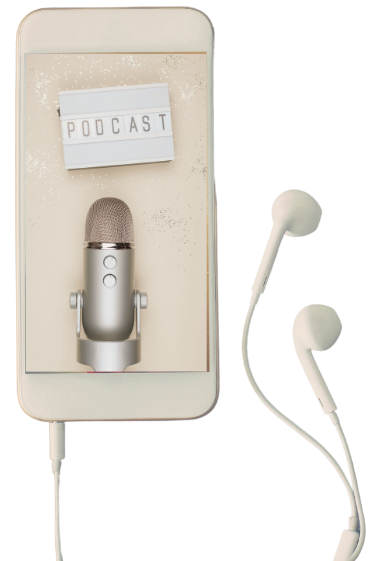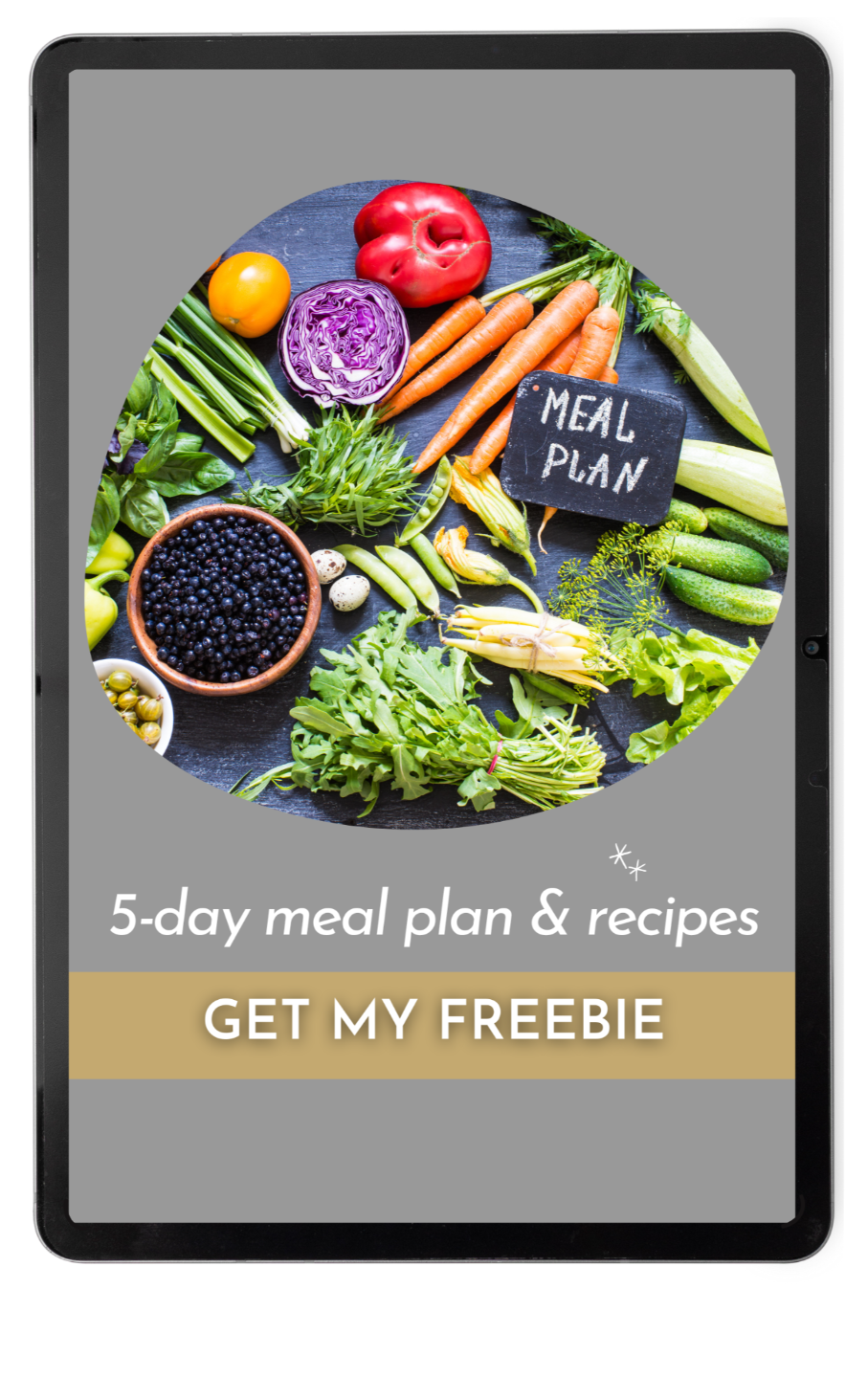The 3 Critical Actions for Sustainable Weight Loss Success
Weight loss can feel overwhelming. So today I'm going to share three critical actions with you that are going to help really give you fantastic results because we want to work smarter, not harder.
Welcome to the Why Weight podcast. I'm your host, Cheryl Takayama, qualified nutritionist, emotional eater and weight loss coach who walks the talk. I've maintained my 30 kilo weight loss for the past 23 years following a low carb plan, and now I coach other women online so they can do the same. It's my mission to help women get off this crazy diet wagon and find a way of eating and a way of thinking that works. So you too can lose your weight for life. Join me each week for lots of practical advice, tips and motivation so you can start now.
When someone comes to see me for a weight loss appointment, they'll often say, "Sheryl, please just tell me what to do to lose weight because I'm so sick of feeling this way." And I could get out a piece of paper. I'd probably write down 15 or 20 things that they could do. You know, there's lots of things we can do to lose weight, but we are busy. We are overwhelmed. We don't need to do 15 things in order to start getting a result. We've just got to start doing something.
So what I'm all about is selecting the most effective actions and getting people started. Their actions that are going to make a big difference to help with weight loss and health. So today I'm going to share three really important actions that you can start doing if you want better results, not just with weight loss, but also with gut health and your overall health. Because when we step back and look at this bigger picture, it's only going to help your weight loss journey. Because we're changing habits. We're changing how we eat, not just what we eat, but actually the timing of our meals, how we eat, when we eat. When you start to make some changes in this area, it can make a huge difference in our ability to lose weight and keep it off.
Action 1: Leave 4 Hours Between Meals
The first action I want to suggest to you today that can make such a big difference is leaving four hours between meals. We've gotta cut out this habit of snacking because it's not just detrimental for weight loss in terms of your blood sugar balancing and your insulin regulation. It's also damaging to gut health. So I want to talk about both of these things.
You see, when you eat between meals, if you have that snack, what happens is your body's insulin is going to need to rise again. We don't want that. We want your body to eat a meal, your insulin is going to go up. It'll help get that sugar out of your blood, and your body will get to work with digesting and processing the food. Then your insulin is going to come back to baseline. Everything's stable. You want to stay in that state for as long as possible, because while you're here, your body could potentially be burning a bit of fat. So taking a good amount of time between meals is really helpful in terms of keeping your insulin stable. That's exactly what we want.
But the other key thing is your gut health. Now once you've processed your meal and your insulin stable again, your body's got another really important task it needs to do, which is cleaning up the shop before we need to eat again. So we have this little mechanism called the migrating motor complex. And that is like a little cleaner that comes out with a broom and sweeps out your intestine, does all the cleaning and gets things ready for the next meal.
Now this is a really important part of digestion. If you eat a snack between meals, that turns off straight away because your body's got to get back into the process of digesting and starting that whole digestive process from the beginning again. Now that's a problem, because if you haven't properly cleaned up your intestines and your gut before you eat again, it's going to have a big impact on your overall gut health.
Now, snacking between meals and your migrating motor complex not working properly can lead to IBS, irritable bowel syndrome, and even SIBO, small intestinal bacterial overgrowth. And it's believed that a part of this is because your body is not having a good amount of time to clean up the shop between meals. So leaving a good amount of time between meals is great for your insulin, but it's also really important for your gut health and your digestion.
The great thing about the low carb way of eating is because you're eating protein and fat, you're going to be feeling a lot more satiated after you eat. You're not going to be feeling as hungry between meals. So I find with clients, it is not too difficult at all to push out that time between meals.
I think it's also really good to have a structure, to have a number to work towards. So whenever I eat a meal, I always just take note of what time I'm eating, and I just make sure that I wait at least four hours. To be honest, often I find I can go five hours easily, sometimes six hours, without even thinking about food. So the longer that I've eaten low carb, the easier it's become to just naturally do this four-hour stint without even thinking about it. But certainly in the beginning, it's a great structure to work towards, and it's going to make a huge difference in terms of your overall calorie load and your gut health.
Action 2: Keep It Light at Night
Now the other saying, which I often say to my clients, which can have a huge difference in their results, is number two, keep it light at night. You want dinner to be the lightest meal that you can have it to be. When weight loss is your goal, it's really helpful when you have a lighter dinner and dinner stops becoming your main meal of the day.
Now, I know this goes against how a lot of us live. I know for many people, dinner is that opportunity when they can sit down as a family and they have their main meal, you're getting most of your calories. I know it might work for lifestyle, but unfortunately when it comes to health, especially gut health, eating a big meal at night is probably one of the worst things you can do.
Just think about it. We wake up, we go through the day. Our body's consuming calories. It's getting to the end of the day and you're choosing to eat your biggest meal then. And then you're going to go and lie down on it. It is not a good action to take for weight loss or gut health.
So one of the things that I'll say to my clients is as often as possible, turn it around and make lunch your main meal of the day. That can make a big difference. Or breakfast, whatever works best for you. And it doesn't have to be every day. Even if you just start experimenting with eating more earlier in the day, in the weekend, then see what a difference it can make.
One little goal I often say to my clients is try and go to bed feeling a bit empty. So not totally hungry so you can't sleep. But if you can go to bed and lie down and your stomach feels nice and empty, I've always found that is very, very helpful in terms of sleep and weight regulation. What's not helpful is when you go and have a big dinner, or maybe you eat dinner and then you go and have dessert. You're getting all these calories, your insulin's spiking, and then you go to bed because that's going to have a huge impact on your digestion, and it's going to affect your sleep. Neither of those things are good.
So experiment with making dinner your lighter meal. Try making dinner a lighter meal and eating it as early as possible and see what a difference it makes for you. This is one of the key changes that I've made, especially as my children have become teenagers, because my kids are very active. My son plays a lot of sports. They're often really hungry at 4:00, so that's often when I'll have my dinner as well. I'll often have dinner around 3 or 4, then sometimes about 8:00. And I found that by eating earlier, it has made a huge difference in my ability to maintain weight. And it just feels really good when you go to bed feeling light. It just feels good. You go to bed feeling good and you wake up feeling good, which has got to be a good thing.
Action 3: Lock the Door on Carbs
Okay. The third critical action, which can make a huge impact on your results, is locking the door on carbs. Now, I'm not talking about the healthy vegetables and low carb substitutes and other forms of carbs that I've mentioned in previous episodes that actually work well with this way of eating. I'm talking about the food items that simply do not serve us, either for our weight loss or our blood sugars. I'm talking about cakes, biscuits, sugar, chocolate, the kind of things that are just not very beneficial at all and can really harm your progress, both mentally and physically.
Now of course, no one's going to be perfect when they get started. No one's perfect at all. But what I've found with people who have gained weight, especially if they've been successful with low carb and then they've sort of gone off track a bit and fallen off the wagon and gone back to no man's land... If they then start eating carbs again, they just gain the weight back, which is never good.
So what I always say to my clients is yes, we can have lots of low carb substitutes, but when you want to get the best result possible, we want to lock the door on all of those really insulin spiking carbs. Don't just close the door and open it again in the weekend, because the desire is there, because it's just going to stop you seeing results so quickly. You want to think of this like divorce, okay, we need to divorce carbs, not just keep them there for the occasional fling.
And I say this because I want everyone to get the best results possible. And sometimes by keeping the door open and tempting ourself with that thought of, "Oh, I'll just have one..." The problem with a lot of these carby foods is that they're quite addictive, and we can't stop at one, so we start with a little bit. And then we have a little bit more. And then we can sometimes fall back into this mindset trap of thinking, "Oh well, I've blown it now. I'll start again tomorrow" and then we end up eating more carbs. You know, it's a dangerous cycle.
So if you make a really clear decision and say, "Okay, while I'm doing this, I am going to lock the door, I'm not going to eat certain foods to the best of my ability." If you do that, you make it really black and white. That is just going to help you get the best result possible.
Now, it may not have to be forever. I always say that the best percentage for weight loss is about 95/5, so you want to be on track 95% of the time. And yes, there might be room for the odd discretion or a treat meal and you'll still see a good result. Maintenance is more like 80/20, so you're sticking to low carb 80% of the time. And yes, there might be room in the weekend for a few of those extra carbs as long as you can control yourself, you know?
So there's always room in maintenance for some extras to come back in there. But for weight loss, the faster you lock the door, the faster you are going to see your result.
Conclusion
So those are three things that you can get started with now that are all easy, that are going to help you really move the dial on the scales:
- Leaving more time between meals, at least four hours
- Keeping it light at night, and eating your calories earlier in the day as often as you can
- Locking the door on carbs and keeping that door shut for as long as you can, because that is just going to help you get the best result possible
And rules make it easy, right? Black and white. There's no gray area. We don't have to do it forever. But in weight loss, having some really clear guidelines definitely helps.
And your key action for today? If you're ready to get started, I would love you to just pick one of these, one of these key actions and start it today. Bring it into your week and see what a difference it's going to make for you. Because I'm absolutely sure that by choosing one of these and really nailing it, you are going to see a great result.
I'll look forward to seeing you next time when I'm going to talk about one of the key issues which comes up so often in weight loss, which is the idea that it's all about calories in versus calories out. I don't necessarily agree with this, and I'm going to share a different strategy with you next week. See you then.
Thanks so much for listening. And if you want support on your weight loss journey, I would love to help. You'll see the links in the show notes for my socials, as well as my fab freebie, a five day low carb meal plan, and five delicious dinner recipes. You'll also see the link for my four week Foundations of Fat Loss program. This is the program I've designed specifically for the fat burning needs of women over 35. Remember, the only thing that's going to stop you reaching your goal is if you quit. Never, ever give up.









